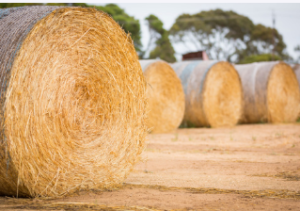The Advantages of Using Baler Twine
Baler Twine can be a simple solution to your need for a strong and lightweight cord. Baling twine is made from sisal or synthetic fibres and is used to bind fibrous material. It has a tensile strength of 95 to 325 psi.
 Sisal twine
Sisal twine
During the earliest days of baling, natural fibres such as sisal were used. However, these materials lasted only a short time. In the 1960s, artificial fibres were introduced into the baler twine industry. These fibres were made to last longer.
These artificial fibres were not as strong as sisal, but they were strong enough to be used in baler machines. Today, the most common baler twine is polypropylene. It is resistant to most chemicals and electrolytes. It has a high tensile strength and low degradation rate when exposed to UV light. It also has excellent resistance to organic solvents and degreasers.
Today, many manufacturers offer baler twine in different colours. These colours make it easier to distinguish additional bales. It also allows for convenient storage. It can be used for crop wrapping and other agricultural purposes. It is also used in various other applications, such as for a clothesline. In addition, it can be used for mending fences and reattaching tractor parts.
Sisal twine is an ideal material for tying hay bales. It is also a realistic option for connecting wire tree baskets. However, it can be damaged by rodents and rot. Therefore, it should not be stored indoors and used for the enormous bale possible.
Sisal twine is also available in various weights, and it is available in 1-ply, 2-ply, 3-ply, and 4-ply. Each ply has a specific weight.
It is essential to know the difference between sisal and polypropylene twine. Sisal twine is made from natural fibres, while polypropylene twine is made from plastic. The wool from sisal is naturally biodegradable, whereas polypropylene is made from a thermoplastic.
Sisal twine can be used for large bales, but it holds less weight than polypropylene. It is because sisal can break easily when baling. However, it is still the best option for large bales. The tensile strength of sisal twine is also essential to note. It can hold up to 750kgf before breaking. It is also important to note that sisal is more environmentally friendly than polypropylene.
Tensile strength
Baler twine comes in various sizes and strengths, depending on the type of knot used on the baler. The most common length is the small square bale. These bales are easy to handle because of their size. They are produced mainly for horse feed and other farm animals. They are also easy to store in a shed.
Polypropylene baler twine is highly resistant to most chemicals and organic solvents. It is also resistant to degreasers and electrolytes. It is also strong, making it perfect for wrapping crops. In addition, it is durable, rot and mildew resistant, and accessible on the hands.
Sisal baler twine is another type of fibre that is used for baling. It has a high tensile strength and is resistant to mildew, rodents, and other pests. It is also made from natural fibre and is environmentally friendly. It is available in different lengths and is perfect for various jobs. It is also available in multiple colours and weights. It is ideal for round baling.
Sisal baler twine can be purchased in rolls of 20,000 feet. In addition, it can be purchased in various colours, including green, yellow, red, blue, and purple. Whether baling hay or straw, you will find high-quality sisal baler twine the best choice.
Baler twine is an essential part of any farm or production. It is necessary for many purposes, including baling hay, mending fences, and making bales. It is a durable material that can be recycled for extra revenue. It is available in various colours and weights, making it easy to identify different bales. It is strong, durable, and UV-treated, so it will last for years.
Colours available
Whether you’re a farmer, a rancher or a backyard hobbyist, you’ll need baler twine to mend your fence, steady a fence post and accommodate livestock. The best way to save money on baling is to choose a plastic polymer twine. These twines are lightweight, environmentally friendly and more practical than the alternatives.
High-quality baler twine is made from raw materials that are melted together to create a sheet. This sheet is then twisted into a high-tensile twine. This product is designed to withstand the rigours of a baler, allowing you to press bales with high pressure. The main components are a plastic polymer, a silica additive, and a UV stabilizer. The UV additive helps protect the twine from premature degradation and vermin.
The best option is to purchase a high-quality baler twine that has been tested for its strength and performance. You’ll also want to ensure that you choose a twine suitable for your baling machine and baling needs. You’ll want to select a baler twine that is thick enough to prevent knotting but not too thick that it will take too long to untangle. A good rule of thumb is to choose a spool size between 130 and 450 m/kg.
Look no further than the LSB Power branded orange segment twine from Tama for those looking for the best quality baler twine on the market. It is the best-performing and most popular twine on the market today. It gives you a guaranteed two-spool pack length of 2600m. In addition to the orange colour, this product has other advantages, including a smoother texture and a higher tensile strength.
